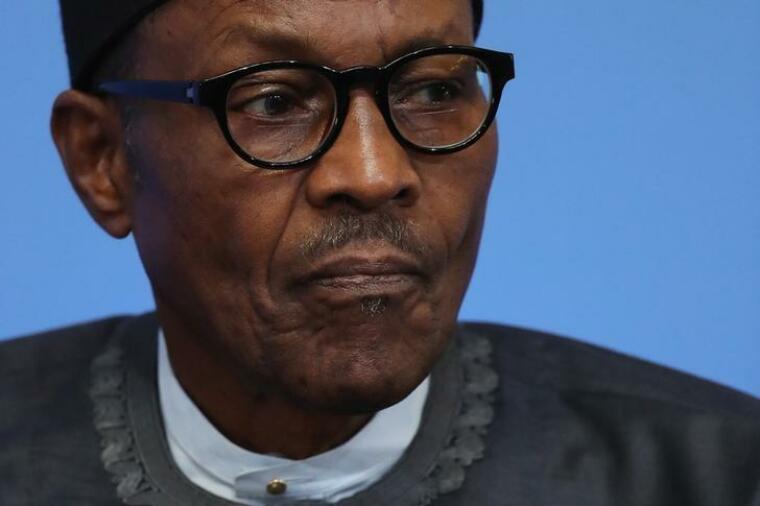Nigeria suspends controversial law that forces church leaders to retire after 20 years

The Nigerian government has suspended a corporate governance code that requires church leaders to resign from their post after 20 years in ministry.
The code's suspension came after a backlash over the resignation of pastor Enoch Adeboye as the general overseer of the Redeemed Christian Church of God (RCGG) last weekend. Adeboye, who has led RCGG for more than 20 years, cited the Financial Reporting Council (FRC) and the governance code as the reason for his decision.
The Financial Reporting Council Bill, which was passed by the Nigerian Senate in 2011, gave lawmakers the authority to enforce principles of corporate governance for public and private companies in the country, according to World Magazine. A proposal to include nonprofits to the governance code went into effect last October.
The code, which was designed to guarantee financial accountability, stipulates that the founder or leader of a nonprofit cannot stay in authority for more than 20 years or beyond the age of 70. It also prohibits the leader from appointing family members as successors.
Religious leaders have argued that the government should not be allowed to interfere with the affairs of the church.
Following the outcry from the public, President Muhammadu Buhari suspended the implementation of the code and fired the FRC's executive secretary.
Musa Asake, the general secretary of the Christian Association of Nigeria (CAN), argued that the government should not dictate how churches operate, as long as there are no violations of established laws.
"[Government] has no business interfering in a church's affairs because it is a no-go-area. Doing that has serious implications. If they attempt it, it will bring confusion and could trigger off religious unrest in the nation," Asake told Christianity Today.
Olusegun Sotola, a researcher with the Institute for Public Policy Analysis, called on the council to adopt less stringent rules.
"If the real intention is transparency, there are other ways they can do it. Spiritual leadership is divine, so the government needs to separate divine leadership from the managerial aspect of (churches), in terms of their finances," he said.
On Tuesday, the House of Representatives admitted a motion to debate the code, particularly as to how it relates to nonprofits.
 Christians don't have to affirm transgenderism, but they can’t express that view at work: tribunal
Christians don't have to affirm transgenderism, but they can’t express that view at work: tribunal Archaeology discovery: Medieval Christian prayer beads found on Holy Island
Archaeology discovery: Medieval Christian prayer beads found on Holy Island Presbyterian Church in America votes to leave National Association of Evangelicals
Presbyterian Church in America votes to leave National Association of Evangelicals Over 50 killed in 'vile and satanic' attack at Nigerian church on Pentecost Sunday
Over 50 killed in 'vile and satanic' attack at Nigerian church on Pentecost Sunday Ukrainian Orthodox Church severs ties with Moscow over Patriarch Kirill's support for Putin's war
Ukrainian Orthodox Church severs ties with Moscow over Patriarch Kirill's support for Putin's war Islamic State kills 20 Nigerian Christians as revenge for US airstrike
Islamic State kills 20 Nigerian Christians as revenge for US airstrike Man who served 33 years in prison for murder leads inmates to Christ
Man who served 33 years in prison for murder leads inmates to Christ


 Nigerian student beaten to death, body burned over ‘blasphemous’ WhatsApp message
Nigerian student beaten to death, body burned over ‘blasphemous’ WhatsApp message 'A new low': World reacts after Hong Kong arrests 90-year-old Cardinal Joseph Zen
'A new low': World reacts after Hong Kong arrests 90-year-old Cardinal Joseph Zen Iran sentences Christian man to 10 years in prison for hosting house church worship gathering
Iran sentences Christian man to 10 years in prison for hosting house church worship gathering French Guyana: Pastor shot dead, church set on fire after meeting delegation of Evangelicals
French Guyana: Pastor shot dead, church set on fire after meeting delegation of Evangelicals ‘Talking Jesus’ report finds only 6% of UK adults identify as practicing Christians
‘Talking Jesus’ report finds only 6% of UK adults identify as practicing Christians Mission Eurasia ministry center blown up in Ukraine, hundreds of Bibles destroyed: 'God will provide'
Mission Eurasia ministry center blown up in Ukraine, hundreds of Bibles destroyed: 'God will provide' Church holds service for first time after ISIS desecrated it 8 years ago
Church holds service for first time after ISIS desecrated it 8 years ago Burger King apologizes for 'offensive campaign' using Jesus' words at the Last Supper
Burger King apologizes for 'offensive campaign' using Jesus' words at the Last Supper Uganda: Muslims abduct teacher, burn him inside mosque for praying in Christ’s name
Uganda: Muslims abduct teacher, burn him inside mosque for praying in Christ’s name